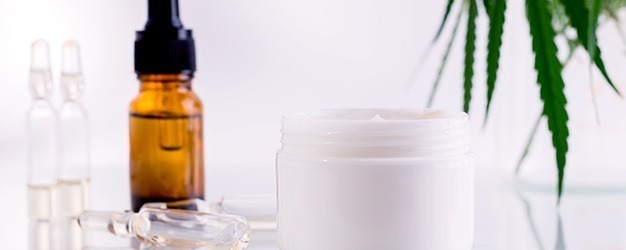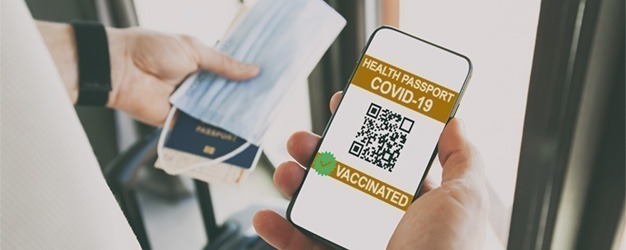
Our Public and Regulatory Law team presents the second edition of the Life Sciences Newsletter, with a compilation of the main news and information of the area occurred in May.
Demarest’s Public and Regulatory Law team continues to monitor developments in the Life Sciences area, and is available to provide any clarification or further information on these and other topics.
Happy reading!
Read the first issue here.
ANVISA – National Health Regulatory Agency
ANVISA: New Regulatory Agenda 2021-2023
The Brazilian Health Regulatory Agency (“ANVISA”), during its 9th Ordinary Public Meeting, approved the regulatory agenda for the years 2021 to 2023. This instrument outlines the Agency’s plans for revisions and innovations within the scope of the regulatory rules of its competence.
Altogether, 146 projects are planned, distributed into 15 macro topics, which include pesticides, food, pharmaceutical supplies, cosmetics, medicines, sanitizers, health services and others.
Among the topics presented in this agenda, we highlight:
- Agrochemicals: regulation of phytochemical and biological products; inspection of pesticide advertising;
- Food: modernization of the regulatory framework, flows and procedures for authorizing the use of food additives, supporting technology, new ingredients and regularization of food;
- Cosmetics: revision of labeling requirements for personal hygiene products, cosmetics and perfumes;
- Medicines: procedures for discontinuing the manufacture or import of medications and reactivation; inspection guides on good clinical practice (GCP); simplified notification of low-risk drugs;
- Health Products: expanded access to medical devices; good manufacturing, storage and distribution practices (GMP, GSP and GDP); risk classification, enrollment and registration; reprocessing medical devices and regularizing orthopedic implants;
- Sanitizers: revision of the technical regulation with requirements for the registration and notification of sanitizing products;
- Tobacco: revision of packaging, display of products at points of sale, import and regularization of smoking products;
- Other Highlights: revision of the technical regulation of imported goods and products for the purposes of Health Surveillance; review of the application criteria for ANVISA-issued AFE (Authorization to Operate) and AE (Special Authorization) of companies, except pharmacies and drugstores; review of good practices in pharmacies and drugstores; sharing between production areas of health products, hygiene products, cosmetics, food and/or pharmaceutical supplies; general guidelines and criteria on collaborative regulatory practices; procedures for the judgment of Health and Sanitary Administrative Proceedings; authorization to deplete the stock of products subject to health surveillance.
In addition to these highlights, ANVISA intends to address many other relevant issues covering several areas of regulated markets. The summarized list of projects can be accessed at this link.
Cannabusiness
Cannabis Regulatory Framework Project
One of the highlights of the month of May refers to Bill 399/2015 (“Bill”), which is currently being processed in the Brazilian House of Representatives and went through intense debates in this month. The Bill, in the form of its substitute, intends to regulate the activities of cultivation, processing, research, storage, transportation, production, industrialization, manipulation, commercialization, import and export of medicinal products based on plants of the genus Cannabis. This is an important advance by Brazil towards a market in rapid expansion in the world.
Regarding the regulation of these activities, the text of the Bill is categorical, allowing only legal entities, with specific purposes, to cultivate the mentioned plant species. Such agents must have prior authorization from the public authorities —activities must be authorized by ANVISA, for human use, and by the Ministry of Agriculture, Livestock, and Supply (MAPA), for veterinary use. Linked to this authorization, there will be other specific requirements, including the cultivation quota and the activity’s security plan.
Specifically regarding the security requirements for these practices, the substitute in the vote places a great deal of attention on the matter and establishes strict parameters, which guarantee that the activities will not be distorted. Thus, the cultivation areas must meet specific safety standards, the products must observe fixed parameters of concentration of the active substances and can only be dispensed with medical authorization and the patient’s consent; and, finally, the Bill prohibits the sale of marijuana-based smoking products.
The Bill also envisions great centrality to research activities, thus allowing institutions with such purpose to have ample freedom to explore the possibilities in the area, a factor that can drive innovation in the Brazilian medical cannabis market. It is worth remembering that in order to obtain authorization for research, research institutions also require authorization from health agencies.
The Bill also proposes to authorize and regulate patient associations, under the same regulation as research entities, in the exploitation of species of the genus Cannabis. This fact represents a major step forward for the treatment of chronic diseases, which has advanced internationally through the use of Cannabis-based products.
In the wake of this regulation, the proposed rule takes a major step towards enabling the inclusion of products derived from Cannabis in the list of medicines distributed by SUS.
In short, the aforementioned Bill seeks to bring Brazil closer to current trends in the international regulated cannabis market and at the same time to obtain advantages for public health in general from the numerous possibilities associated with the medical use of Cannabis.
COVID-19
Covid-19 Sanitary Passport
Bill 1158/2021 (“Bill”), which provides for the Covid-19 “Sanitary Passport”, developed by the Ministry of Health in partnership with the State Health Secretariats, is currently being processed in the House of Representatives in order to allow, after the peak of Covid-19 infection, people’s return to travel nationally or internationally, in a safe, responsible manner, with protection for all those involved.
Under the terms of the proposed text, this document will be issued by the Ministry of Health and will serve as a mandatory requirement for national and international travel, as well as for accommodation in the hotel chain.
According to the Bill, the Sanitary Passport will contain: i) digital vaccination card, the creation of which is subject to the approval of PL 4998/20; ii) vaccination certificate against Covid-19; iii) negative PCR test certificate; and iv) traveller’s recovery certificate, signed by a responsible physician, valid for 180 days from the diagnosis of the disease.
Specifically on the issue of the vaccination certificate, the normative text states that vaccination is not a requirement for travel and accommodation. On the other hand, the vaccination certificate attached to the passport will serve as proof in situations where there is a need for proof of vaccination, including situations at the international level.
Finally, the Bill establishes that the Sanitary Passport will be suspended only when WHO declares the definitive end of the pandemic.
ANVISA – National Health Regulatory Agency
Extension of special rules for the importation of health products in the pandemic
On May 12, ANVISA extended for a further 60 days, through RDC 496/2021 (“Resolution”), the extraordinary rules for importing new medical devices and medicines identified as priorities in the fight against the pandemic caused by Covid-19. These rules were originally published in March through RDC 483/2021, with some wording changes implemented since then.
RDC 483/2021 aims, in an extraordinary and temporary way, to facilitate and relax certain conventional rules for the importation of new medical devices and medicines identified as priority by the Resolution.
Áreas Relacionadas















